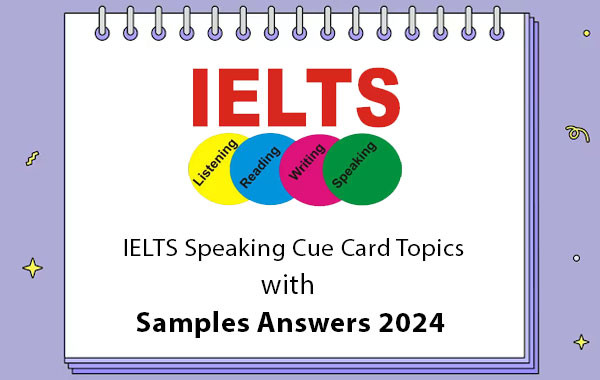Table of Content
IELTS Reading Tips - Overview
The IELTS Reading test evaluates reading comprehension skills, assessing ability to understand main ideas, details, and implied meaning. The 60-minute test consists of three sections with 40 questions, featuring various text types, such as articles, reports, and passages. Sections include:
- multiple choice, matching, and identification questions on general interest topics in Section 1.
- descriptive and factual texts, often related to work or studies in Section 2.
- longer, more complex texts on abstract or discursive topics in Section 3.
Scoring ranges from 0-9, with Band 9 indicating "Expert User." Achieving 6.5-7.0 is typically required for academic purposes and consider as the good score.
IELTS Reading Tips
IELTS Reading tips are crucial for achieving a high band score. The reading section accounts for 33% of the overall score, making it a significant component of the exam. Effective tips help test-takers navigate this challenging section, enabling them to manage time efficiently, identify question types and keywords, and improve vocabulary and comprehension.
Mastering these skills boosts confidence, improves reading comprehension, and increases the chances of admission to top universities or immigration opportunities. Well-prepared readers can tackle the reading section with ease, ensuring a strong foundation for success. By leveraging IELTS Reading tips, test-takers can optimize their performance and achieve their desired band score.
Before the Test
Familiarizing yourself with the IELTS Reading test format and question types is crucial to achieving a high band score. Review the three sections, including the range of text types and question formats, such as multiple choice, matching, and identification. Practice reading academic texts, articles, and passages to improve your reading comprehension and vocabulary. Learning synonyms and expanding your vocabulary will also help you better understand complex texts.
During the Test
Effective time management is vital during the IELTS Reading test. Allocate 20 minutes per section and prioritize the easiest questions first. Skim and scan texts to identify main ideas and keywords, then read questions carefully to identify question types. Use keywords to locate answers in the text, and answer questions in the order they appear. Monitor your time and adjust your pace as needed to ensure you complete all questions.
Question Types
Understanding IELTS Reading question types is essential to answering correctly. Multiple-choice questions require eliminating incorrect options, while matching questions involve identifying key phrases and matching with options. Identification questions require locating specific information, and summary completion questions require filling gaps with relevant information. Recognize question words, such as who, what, when, and where, to focus your search.
Strategies
Employ effective strategies to optimize your IELTS Reading performance. Focus on question words to guide your search, and use context clues to infer answers. Avoid spending excessive time on one question; instead, flag it and return later. Review your answers, checking for completeness and accuracy. Use keywords and phrase matching to locate answers efficiently.
Common Mistakes
Be aware of common mistakes that can lower your IELTS Reading score. Failing to manage time effectively, reading questions carelessly, or not using keywords to locate answers can lead to lost points. Incomplete or incorrect answers are also deducted from your score. Stay focused, manage your time wisely, and review your work to avoid these pitfalls.
Practice and Review
Regular practice and review are crucial to improving your IELTS Reading skills. Practice with sample questions and texts, analyzing your mistakes to identify areas for improvement. Review and expand your vocabulary, focusing on word meanings and contexts. Enhance your reading comprehension by reading diverse texts and practicing under timed conditions.
More Tips to Improve Your IELTS Reading
This is not all, you need to learn a few more things to improve your IELTS reading to score good points. Check out some more tips to improve your IELTS reading:
Improve Your Vocabulary
Expand your vocabulary by learning new words, phrases, and idioms. Use flashcards, and vocabulary apps, or read books and articles.
Enhance Your Reading Speed
Practice timed readings to increase your reading speed and efficiency. Aim for 200-250 words per 20 minutes.
Identify Question Types
Recognize question types, such as:
- Matching
- Multiple Choice
- Identification
- Summary Completion
- Sentence Completion
Use Skimming and Scanning Techniques
Skim headings, subheadings, and paragraph intros to grasp main ideas. Scan texts for specific information.
Focus on Key Words
Identify key words and phrases in questions and texts to locate answers efficiently.
Practice Active Reading
- Engage with texts by:
- Identifying main ideas
- Recognizing supporting details
- Making inferences
- Identifying author's purpose
Develop Your Note-Taking Skills
Record key information and ideas while reading. Practice concise note-taking.
Improve Your Comprehension
Enhance your understanding by:
- Reading diverse texts
- Identifying context clues
- Making connections between ideas
Manage Your Time Effectively
Allocate time wisely:
- 20 minutes per section
- 5-10 minutes for reviewing answers
Stay Focused and Avoid Distractions
Maintain concentration during practice and the actual test.
Seek Feedback and Review
Get feedback from instructors or peers. Review your mistakes to improve.
By incorporating these tips into your study routine, you'll significantly enhance your IELTS Reading performance.
What’s the Difference Between the Academic and General Training Reading Tests?
When we talk about Academic and General Training Reading Tests, we need to consider different aspects. Those aspects that make both the training different are purpose of taking IELTS test, test structure, content focus, text complexity, types of questions, scoring criteria, target audience, time allocation, word count, preparation approach, etc. Let’s check how these training are different:
| Aspect | Academic Reading Test | General Training Reading Test |
| Purpose | Assesses readiness for higher education or professional settings | Evaluates practical reading skills for daily life and work |
| Test Structure | 3 long passages with increasing difficulty | 3 sections: everyday materials, work-related texts, and longer passages |
| Content Focus | Topics from academic sources, such as journals or research | Focuses on social, work-related, and general interest topics |
| Text Complexity | High-level academic vocabulary and formal tone | More straightforward language with some formal and informal tone |
| Types of Questions | Multiple choice, True/False/Not Given, short answers, matching | Similar question types but with simpler vocabulary |
| Scoring Criteria | Scaled scoring to reflect academic reading proficiency | Scoring adapted to general reading ability requirements |
| Target Audience | Prospective students or professionals requiring certification | Individuals applying for immigration or non-academic employment |
| Time Allocation | 60 minutes for 3 long texts | 60 minutes for 3 sections, increasing in length and difficulty |
| Word Count | Around 2,150-2,750 words in total | 2,000-2,300 words, with more varied length across sections |
| Preparation Approach | Focus on understanding complex academic material and vocabulary | Practice reading diverse everyday texts and skimming skills |
Conclusion
Unlock Your Dreams with Our Expert IELTS Coaching! At WayUp Abroad, our team of experienced trainers and experts will guide you to achieve a high IELTS score, unlocking new opportunities to study, work, or settle abroad. We offer personalized coaching, comprehensive study materials, regular practice tests, and expert tips for each section. Improve your scores in reading, writing, listening, and speaking with our tailored approach, mastering techniques for skimming, scanning, close reading, cohesive essay writing, auditory skills, and confident speaking. Join our flexible batches, contact us at +91-7877512818 or inquiry@wayupabroad.com, and visit our website www.wayupabroad.com to take the first step towards achieving your dreams!




.png)


Leave a Reply